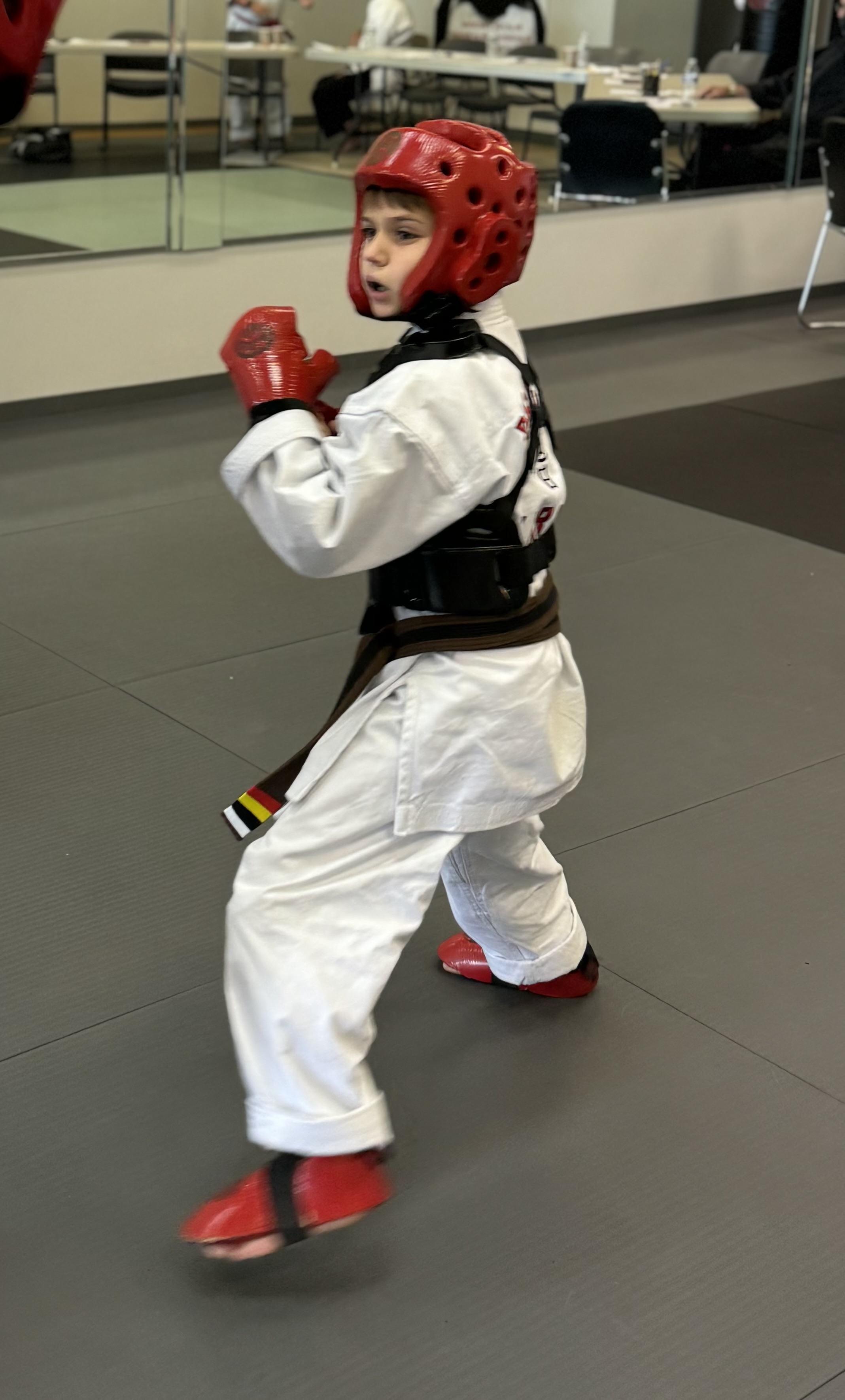If there is one thing that martial arts practitioners believe, it is that a foundation of discipline, respect and training will help bring you success. If there is another thing they all believe, it is that martial arts are for everyone. This is why most martial arts schools and school owners do their best to accommodate both individuals with both physical differences and neurodivergent individuals, such as those on the autism spectrum.
Not only does martial arts provide a welcoming environment, but training can be very beneficial! For those looking to handle the issues that can arise with autism spectrum disorder (ASD), karate dojos and other martial arts training institutions provide a gateway to breaking down physical and emotional barriers. In fact, one of the best ways to overcome these obstacles is through these training programs.
ASD
Those who deal with ASD on a daily basis understand the problems associated with it. Primarily, is causes a difficulty in understanding and relating to others on a personal level. Signs may include:
- Inability to articulate speech
- Avoidance of direct eye contact
- Repeated actions or movements
- Slowed communication development
- A preference for alone time
- Resistance to changes in routine
- Repeated words or phrases
Since the disorder shows itself in a wide variety of symptoms, it is looked at as a spectrum that many fall into based on certain criteria. This makes it extremely difficult to gauge what the best treatment might be. This is where martial arts come into play.
A Benefit to Repetition
Repeated actions for no intended or obvious purpose is known as stereotypy (also called “stimming”). Since this is one of the primary indicators for those falling within the spectrum, it makes sense that it is a symptom that should be examined more closely.
Most sports rely on repeated actions to create muscle memory, increasing an athlete’s performance and making swinging a bat or performing a gymnastics routine second nature. It may be that this inherent need to repeat phrases or actions is exactly what makes the martial arts ideal for individuals on the autism spectrum.
The Kata
Martial arts as a training exercise uses repetition of movement and verbal cues to help instruct and guide students to learn responses to exterior stimuli. Movements are organized in steps called kata, the basic foundational movements for defensive and offensive action
Going through these movements helps to create muscle memory based on repetitive actions, exactly what those coping with a autism deal with already. By transposing external motions over the internalized need to repeated movement, students can overcome impulse and become confident in their own bodies.
Quantitative Results
The use of the kata as a method of reducing stereotypy is more than just a concept. A study in Iran took 30 school-aged children (5-16 years of age) and split them into a control group and a group enrolled in a martial arts program. The results were extraordinary.
While the control group recorded no change, the students instructed in kata for 14 weeks (or 56 sessions) showed a significant loss in stereotypy. With an over 40% reduction of impulsive movement, these students saw the benefit persist even months after the study concluded.
Working Together
The other big benefit to martial arts training comes with the environment of instruction. Classmates and instructors work together to better themselves as a whole in a situation where watching others succeed and learn new katas reinforces lessons already learned.
Social interaction becomes a necessary step to progress, and since it is built into the foundations of their education. While competitive training and the stresses rooted within might not create ideal conditions, once students with autism become familiar with the instruction it is possible and even likely they will thrive in such an environment.
An Enjoyable Alternative
As of today, the most effective and trusted method for treating those on the spectrum is occupational therapy (OT). This method focuses on altering and improving physical behavior while also looking at the root of related physical and emotional issues.
While this is an excellent practice, it may not be the best avenue for success for everyone. Martial arts training has the added benefit of progress, something that is only tangentially part of OT. With established goals in sight, and a sense of accomplishment and fun as they achieve those goals, students with ASD symptoms often enjoy this form of treatment more.
There is no question that those dealing with ASD, whether they be parents or individuals with ASD themselves, seek an established way to deal with symptoms associated with the disorder. Martial arts training provides both the rigorous repetitive training and the social interaction necessary to help all kids become more confident with themselves and proud of their abilities.
Learn more about autism and martial arts here:
Psychology Today: Martial Arts Training Can Help Autism
Psychology Today: Martial Arts and the Autism Spectrum
Autism.LoveToKnow.com: Martial Arts Therapy for Asperger's Syndrome
Martial arts teaches tremendous life lessons/values to all individuals who train, including honor, respect, courage, and more!

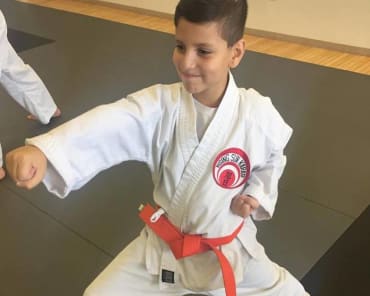

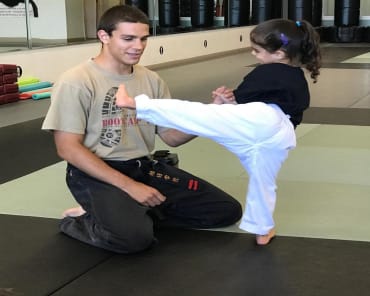
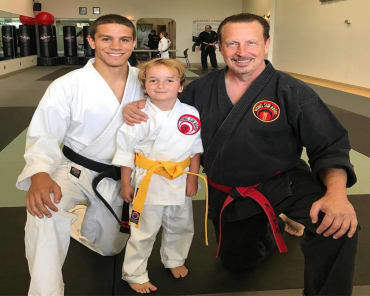
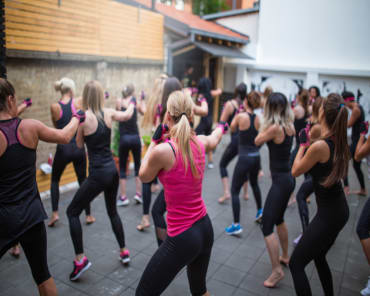


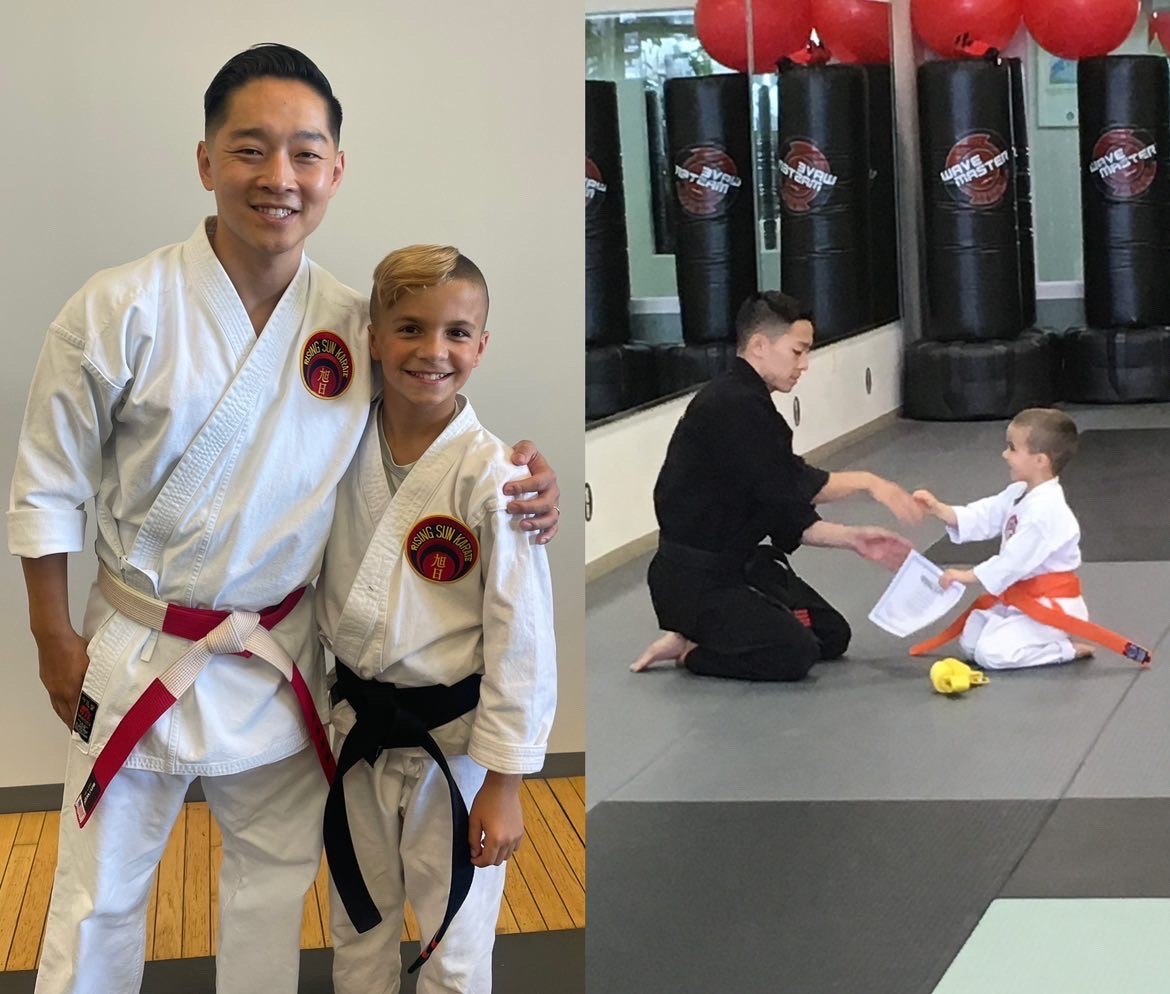 showed incredible persistence and a heartwarming ability to connect to young students. They were always patient and able to redirect behavior to ensure that not only Vincent, but all of the students in the class were engaged in the skills being taught and also having fun.
showed incredible persistence and a heartwarming ability to connect to young students. They were always patient and able to redirect behavior to ensure that not only Vincent, but all of the students in the class were engaged in the skills being taught and also having fun. 